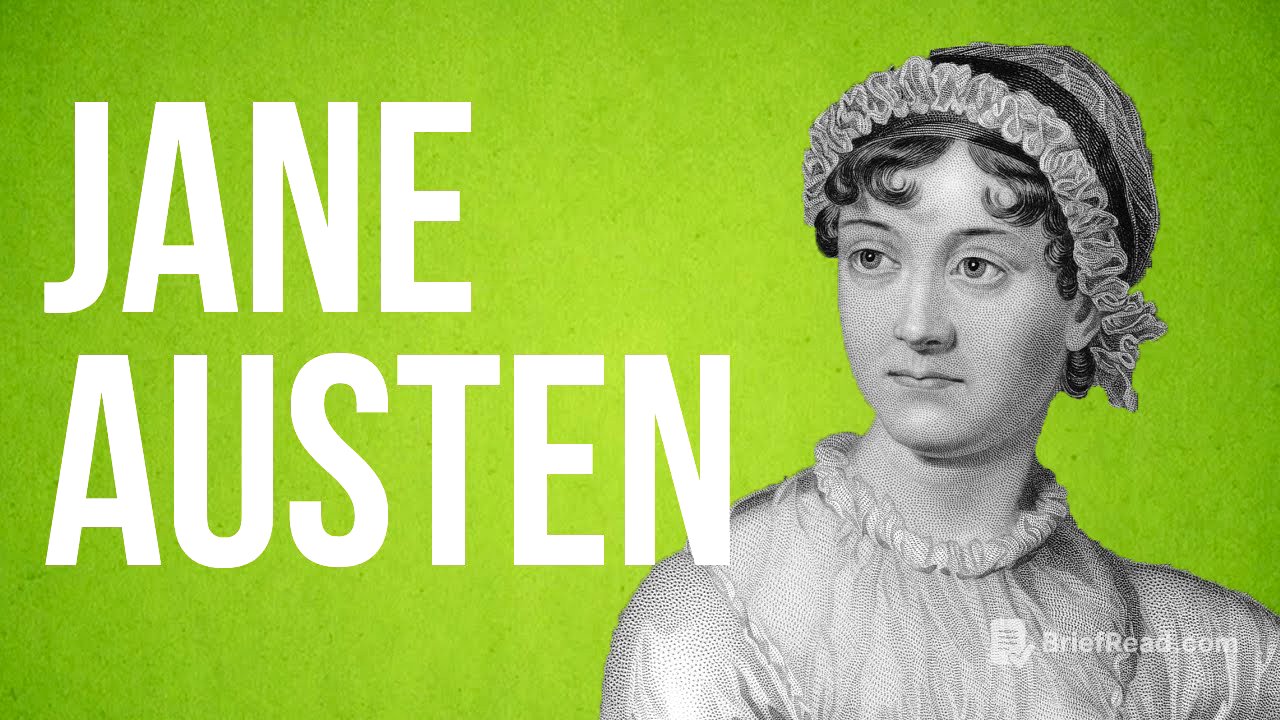TLDR;
Jane Austen's novels are more than just stories about fashionable life; they are moral guides aimed at making readers less selfish and more reasonable. Austen addresses themes of love, money, and social status, advocating for maturity in relationships, a balanced view of wealth, and the recognition of true worth beyond social conventions. Her stories invite readers to reflect on their own behaviors and strive for moral improvement.
- Love should be based on mutual improvement and maturity.
- Money should be viewed with balance, neither idolized nor ignored.
- True worth lies in character, not social status.
Love and Mutual Improvement in "Pride and Prejudice" [1:03]
In "Pride and Prejudice," the relationship between Mr. Darcy and Elizabeth Bennet exemplifies how love should be based on mutual education and improvement. Darcy's initial arrogance is challenged by Elizabeth's reproof, leading to his humility and personal growth. Similarly, Elizabeth benefits from Darcy's judgment and knowledge. Austen suggests that ideal partners help each other overcome failings and mature, illustrating that marriage should depend on maturity and education.
Moral Lens in "Mansfield Park" [2:41]
"Mansfield Park" tells the story of Fanny Price, who lives with her wealthy cousins, the Bertrams. Austen uses Fanny to show that moral qualities are more important than wealth and social status. While the Bertrams hold high social standing, they are morally confused, while Fanny, despite her humble background, is portrayed as noble. Austen shifts the focus from societal measures of wealth and power to a moral evaluation of character.
A Balanced View on Money [3:21]
Austen directly addresses the topic of money, believing it's crucial to understand its impact on our lives. She critiques two common mistakes: being overly impressed by wealth and disregarding the necessity of financial stability in marriage. While she acknowledges that wealth doesn't guarantee happiness, as seen in the unhappy marriage in "Mansfield Park", she also asserts that marrying without sufficient funds is foolish. Austen advocates for a balanced perspective, recognizing money's importance for comfort without idolizing it.
Critique of Snobbery in "Emma" [4:48]
In "Emma," the protagonist, Emma, influences Harriett Smith to reject a marriage proposal from a farmer, believing he is beneath her. This decision leads to heartbreak for Harriett when her pursuit of a vicar fails. Austen uses this scenario to critique snobbery, portraying Emma's actions as cruelly snobbish. Austen suggests that social conventions can obscure true worth, and she treats snobbery with pity, viewing snobs as individuals in need of guidance and reform.
The Moral Ambition of the Novel [5:51]
Austen chose novels over sermons to convey her moral vision, using engaging stories to illustrate the importance of her values. Through her narratives, she invites readers to recognize and reject negative traits like greed and arrogance, while embracing goodness in themselves and others. Austen's work aims to reform readers by showing them the world through stories that entertain and grip them. The satisfaction derived from reading Austen stems from her desire for a better world, making her a beloved writer.









